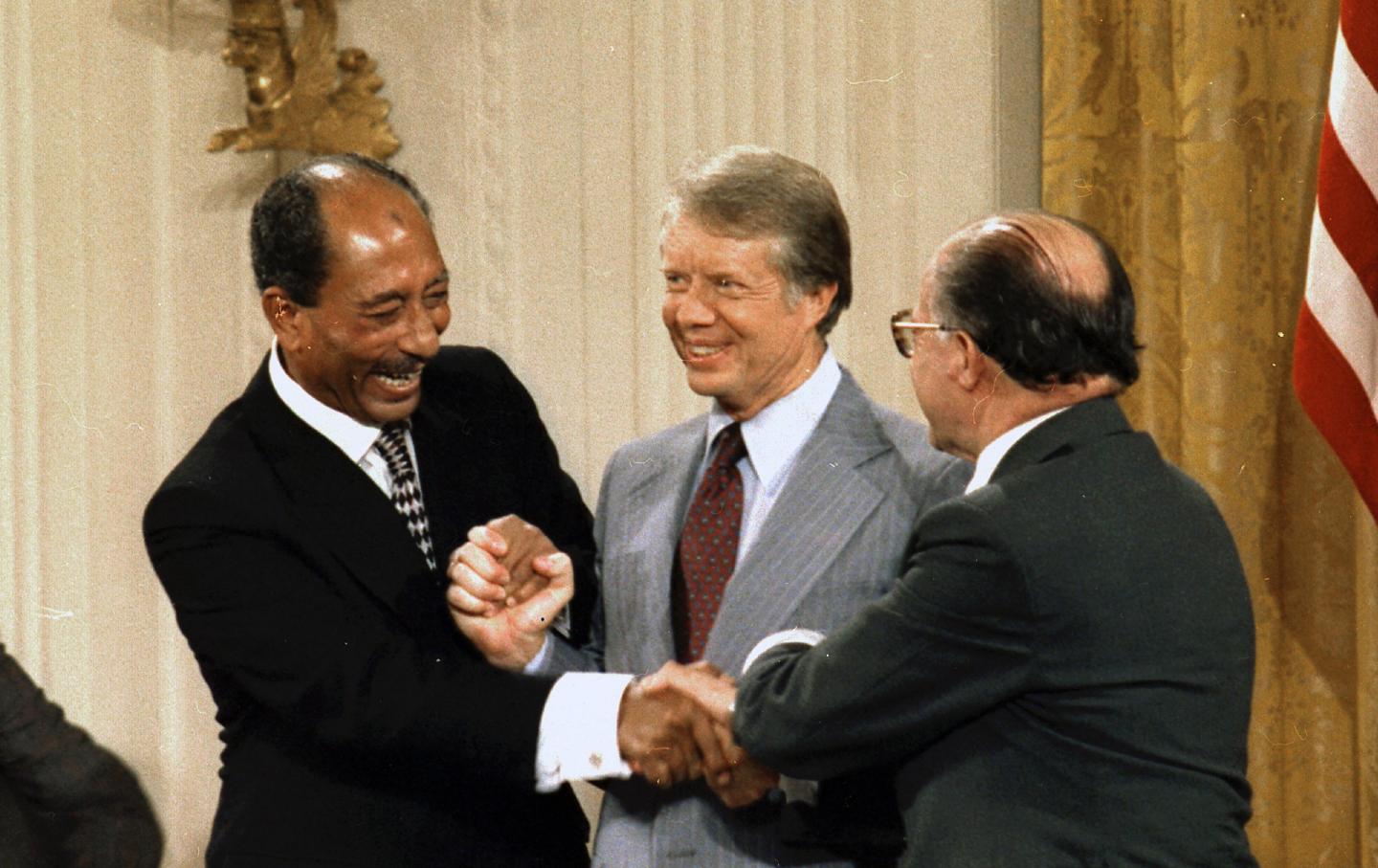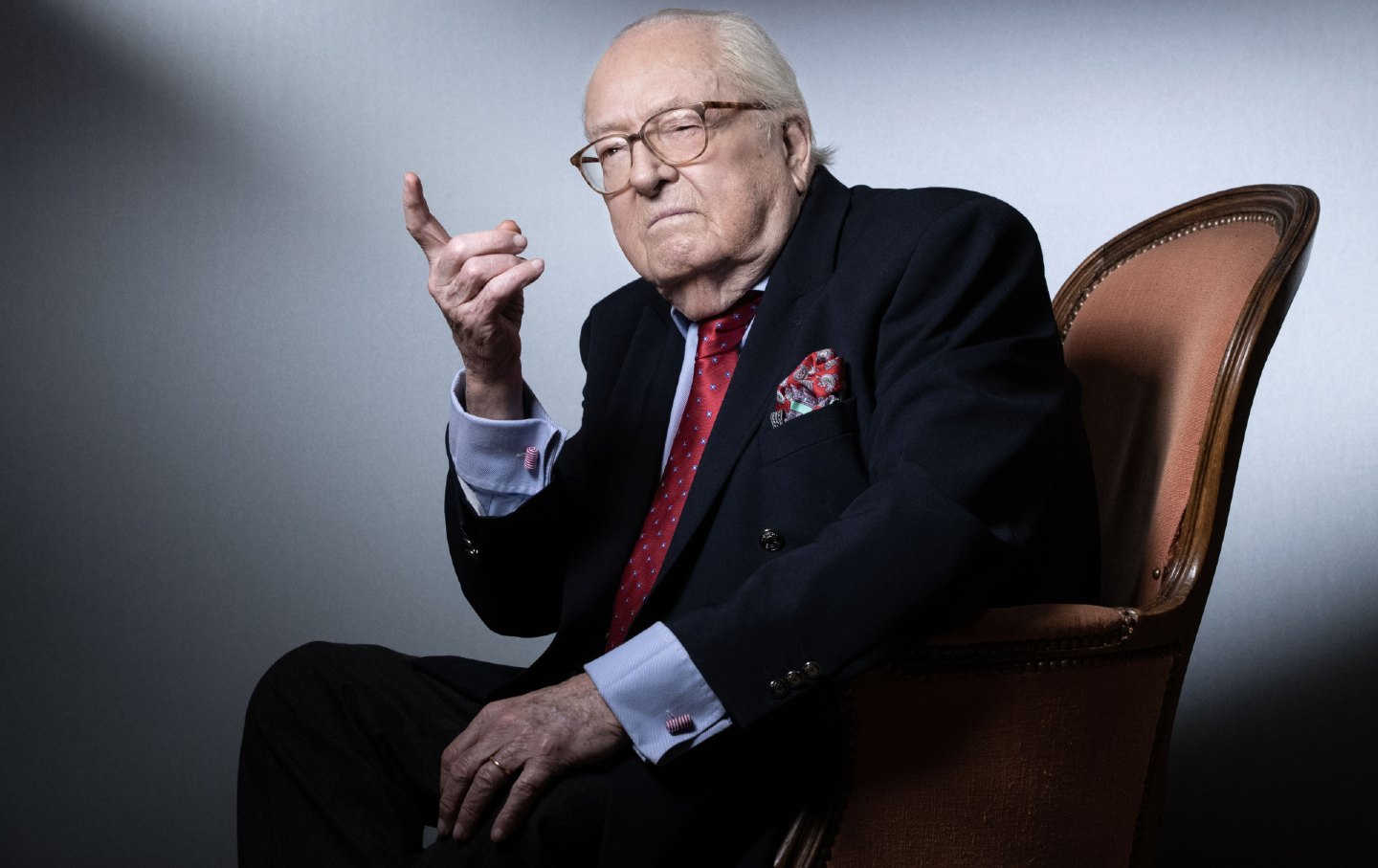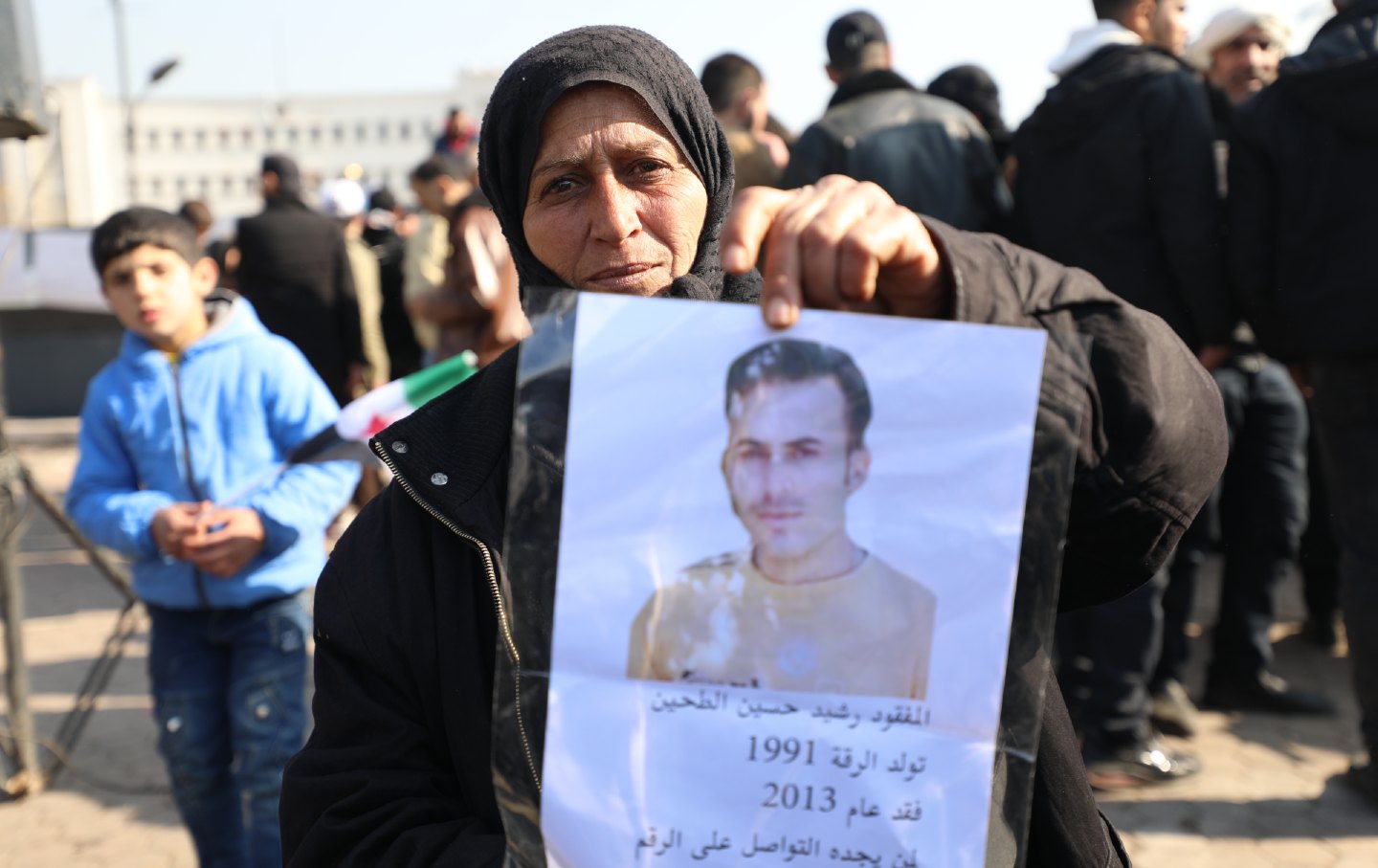Carter summoned Menachem Begin and Anwar Sadat to Camp David to bring peace, not apartheid, to the Middle East. But the Israeli president reneged on his promise to freeze settlements.

Last summer, former President Jimmy Carter had a tepid and staccato conversation with one of his great-grandchildren. As he approached his 100th birthday, he had spent nearly 15 months in a home hospice. He said his life was wonderful. He succeeded in everything he tried – a distinguished career as a Navy submarine officer working under the notoriously domineering captain, later Admiral Hyman Rickover; Governor of Georgia; President of the United States; 2002 Nobel Peace Prize winner; author of 33 books, including a childhood memoir—one hour before dawn— that was shortlisted for the Pulitzer Prize. Yes, he told his great-grandson, he was successful at everything and had no regrets: “But I don’t seem to be good at this dying industry.” So he still had that sarcastic, acerbic sense of humor.
However, as his biographer, I can say with bold certainty that he left behind deep regrets throughout his long life. Ironically, it was called Camp David, the site of his greatest personal diplomatic triumph. Yes, the 1978 Camp David Accords brought nearly half a century of peace to Israel and Egypt. Carter single-handedly drove Egypt, Israel’s only serious conventional military threat, from the battlefield. To be sure, it remains an icy peace that has survived in part because Egypt is still governed by a brutal military dictatorship. But despite this, the two countries, which had fought four major wars, established diplomatic relations and never went to war again.
But Carter wanted and expected more. In fact, he believes he has achieved comprehensive peace for the entire Arab-Israeli conflict, including a concrete road map for Palestinian self-determination. Specifically, Carter believes he has won a commitment from Israeli Prime Minister Menachem Begin to freeze all Israeli settlements in the West Bank for five years, during which time an agreement on Palestinian autonomy and autonomy will be negotiated. The clear but unspoken assumption is that Palestinian autonomy will lead to the demilitarization of a Palestinian state. The world’s most intractable and incendiary conflict will ultimately end in a political compromise between the two countries.
But it didn’t happen. Carter was deeply disappointed and even angry at Prime Minister Begin’s betrayal. “He was trying to make the deal happen,” Carter wrote in his diary. Two days later, Carter noted again that Begin had publicly “denied the agreement we reached on Saturday night, which I have a complete record of and a perfect memory of.” Moshe Dayan, a member of the Israeli delegation at Camp David, confirmed Carter’s statement about the settlement freeze. A statement on a key issue. On September 20, 1978, Dayan told Carter that he was “extremely disturbed by Begin’s public disagreement with the president over the length of the settlement freeze.”
Three months later, Carter was outraged when Begin announced a massive expansion of West Bank settlements. He complained bitterly to Stuart Eizenstat, his chief domestic aide, that the Israelis had lied to him. When Eisenstadt pushed away gently, Carter reached into a drawer in Resolute’s desk and pulled out a document: “These are notes from my meeting with Begin,” he said. “Here you can see the ‘five-year settlement freeze’.”
Carter wanted more than just a separate peace between Egypt and Israel. So does Egyptian President Anwar Sadat, who also understands that his own political viability, and even his personal security, depends on reaching a deal that cannot be seen by the Arab street as an abandonment of the Palestinian cause.
current problem

Begin got what he wanted, a separate peace with Egypt, but he broke his promise to the American president. Carter felt betrayed, which is apparently why he would speak out against Israeli settlements without mercy in the years and decades to come. This bluntness cost him dearly. American Jewish forces began to turn against him.
A majority of Jewish American voters turned against Carter in the 1980 election. Carter won only 45% of the Jewish vote, the first and only time a Democratic presidential candidate lost the Jewish vote.
Carter lost his re-election bid for a number of reasons, but he was particularly angry that Jewish Americans abandoned him after he risked his presidency to wrest Egypt from the battlefield for Israel.
Sadat was assassinated three years after Camp David by Islamist officers angry that he had abandoned the Palestinians. Sadat’s death strengthened Carter’s determination to use his presidency to speak out against Israel’s violations of the West Bank. He did this repeatedly. But no one is listening.
Finally, Carter published a book about the conflict in 2006. He gave it a provocative title, Palestine: peace not apartheid. His editor at Simon & Schuster, Alice Mayhew, reportedly tried to dissuade him from using the inflammatory word “apartheid.” So did Stu Eisenstaedt and other former aides. Ken Stein, a longtime Carter Center aide, resigned in protest.
Carter wanted to provoke. The title is certainly provocative, but the word apartheid in the title is meant as a warning – a clear observation that if Israel does not make peace with the Palestinians, the reality on the ground will continue to increase, as will the number of settlements in the West Bank. will continue to increase and will forever rule out a two-state solution. It is worth noting that Carter’s text in the book does not indicate that Israel is already an apartheid state.
Friends of Israel were outraged, and Carter made himself even more of a pariah within the American Jewish community. Some have accused him of anti-Semitism. Carter tried to explain that he meant no offense. But he defended his book, which shot up the bestseller lists, selling 275,000 hardcover copies.
That was 19 years ago. Of course, things have gotten worse in that dangerous neighborhood since then. On October 7, 2023, Hamas committed a war crime, killing approximately 1,200 Israelis, and some Palestinians cheered. Prosecutions have so far killed approximately 45,000 Palestinians and 90 Israelis.
Carter’s book proved prescient. He has always been a prophet, speaking uncomfortably hard truths, but now his voice is no longer so alone. Sadly, he was right about settlements in 1978 and he was right about settlements in 2006. “Israelites” are crisscrossed by roads and complicated by civil and legal restrictions. The Palestinian people cannot pursue a normal life.
Popular
“Swipe left below to view more authors”Slide →
I believe that a two-state solution can still be developed if the international community can muster the necessary courage. But it must be implemented through very concerted political and diplomatic pressure, backed by economic and military sanctions. Sadly, this is unlikely.
More likely, Israel will announce an annexation, first of major settlements and then gradually of the entire West Bank. Palestinians will be forced to leave. This is a very bleak outlook.
This is why Camp David became Jimmy Carter’s deepest regret. He wants more from Israel than a continued state of war. He wanted peace, not apartheid.
More from nation

The elder Le Pen has died, but far-right populists around the world still echo his violent rhetoric, shameless lies and outreach to mainstream conservatives.
obituary
/
David A. Bell

Some refugees may return to Syria because they want to live there again. But many wouldn’t – and for the same reason many refugees from Nazi-occupied Europe didn’t do so after World War II.
Linda Manheim

Coverage of Syrian prisons ignores that they have been used for decades as a major destination for extraordinary renditions, where terror suspects are sent for brutal interrogations.
Barbara Koppel

China’s latest export restrictions expose the complex geopolitics behind President Trump’s proposed tariffs and green energy transition.
Nicholas Niarchos

Although the war on terror has faded into the background of our lives, its premises and tactics remain evident.
Karen J. Greenberg


